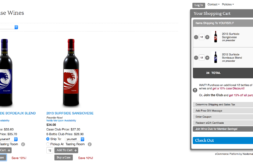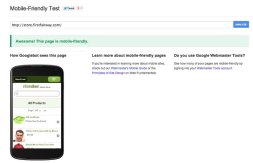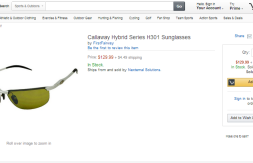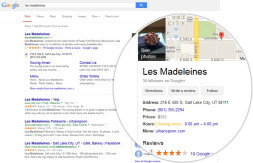Affiliate Marketing: Driving traffic to your site
With all the different types of web marketing tools available: pay per click advertising, search engine optimization, bulk emailing, marketplace feeds, social networking, among many others, it’s no wonder that some of the old reliable efforts have become forgotten. This is especially true with affiliate marketing. Affiliate marketing can be an effective practice that is tailored to fit your budget, no matter how small or large. So why aren’t all online retailers taking advantage of such programs? For some, they might not even know this type of marketing exists, or the idea of a commission-based pricing model could be a turn off. For others, it could just be a matter of not knowing where to start. Either way, there are thousands of online merchants who are successfully using affiliate marketing to drive traffic to their sites and stores each day including the likes of Amazon.com. Because affiliate marketing is a two-way street, many of those same merchants are also generating supplemental revenue by driving visitors to other e-tailers’ sites and ‘getting credit’ for the resulting sales.
So, what exactly is affiliate marketing? Plainly put, it’s a cooperative effort between businesses to drive traffic and sales to each others’ sites in exchange for a commission, or even more simply: revenue sharing advertising. While there are many players in this field, Commission Junction, ShareASale, and My Affiliate Program are among the most popular. Many ecommerce applications also have built in affiliate programs. The main advantage to using a third party service such as Commission Junction is that affiliate marketers can find you in popular affiliate market places. If you run you own affiliate program, it is up to you to market it and find affiliates.
As with many other marketing efforts, deciding which ones to employ is often the most difficult part. The act of initiating and executing most affiliate programs is very hassle free. With the networks mentioned above, merchants simply enter their product links into the respective administrative portal, making them available for publication. Once publishers are selected and rates are agreed upon, they’ll begin to place your product links on their website and as customers click through to your store and ultimately place orders, and the publisher is compensated. Merchants can even determine what constitutes a transaction: i.e. a purchase, or filling out of a form. This is done by tracking the consumer’s session with a cookie that originates from clicking the affiliate link and by adding a snippet of tracking code to your conversion page (for ecommerce sites this is the page that is displayed once an order has been submitted).
Like everything else, not all affiliate networks are the same, the size or reach of them being the major differences, as well as cost. Commission Junction, the furthest-reaching of the three we looked at has over 100,000 members in its network, while ShareASale has 2,500+, and My Affiliate Program 1,000+. For this reason, Commission Junction has a $3,000 access fee with a $500/month minimum, and a per sale fee of 30% of what your publishers make from you. A much lower cost option is ShareASale, which normally has a $150 set-up fee and a $25 monthly minimum. Lastly, My Affiliate Program: a $2,495 Licensing Fee and $500 monthly minimum, with My Affiliate Program making 20% of your publisher’s commissions. My Affiliate Program also offers a lower cost solution ideal for smaller merchants called Inuvo, with no set-up fee or monthly minimum and a cost of 20% of your publishers’ commissions.
If and when you decide that affiliate marketing is right for you, you might consider evaluating whether or not it’s a fit to become a publisher as well. This will allow you to seek out other online merchants who are looking for sites to advertise their products on. In turn, you’re rewarded for any traffic and/or orders that come in from their links on your site. This is done by negotiating with the merchants on rates and what you designate as a successful lead. In many cases, this is a great way to contribute to the fees for your own affiliate advertising campaign.














